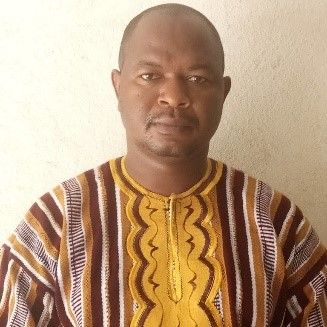The following article is part of our ‘Ethics in Practice’ series in partnership with Internews Europe about reporting on Covid-19
By Tawedzegwa Musitini
During the biggest global crisis in living memory, local media are a lifeline providing access to trustworthy and accurate information that saves lives as well as a public service which nurtures an informed, active and engaged public.
In recognition of the critical role information plays, journalists in Zimbabwe are among the few professionals considered an essential service. However, some of the country’s stringent restrictive measures during the lockdown have significantly affected the ethical standards of journalists, and compromise journalistic autonomy.
The basic norms of ethical journalistic practice in Zimbabwe, like everywhere, call for journalists to be truthful and accurate. Getting the facts right is the cardinal principle of journalism – fairness and impartiality are key. Moreover, journalists should avoid at all costs hate speech and material which can incite violence against and the stigmatisation of people. As providers of a basic good, journalists should hold themselves accountable to their audiences.
Covering COVID-19 has presented ethical challenges owing to the radical shift of newsrooms’ modus operandi and Zimbabwe has witnessed several cases where ethical considerations have been undermined. As journalists scramble to cover the impact of the coronavirus, they grapple with a bitter irony: demand for information is soaring, but the business model funding them is collapsing and so they are being asked to do more with less while still under restrictions of movement and social distancing guidelines.
A case in point was a news story in The Chronicle (Thursday 16 April) accusing a COVID-19 positive patient of exposing residents to the virus. The media house reported ‘Patient number 15’ as having violated self-isolation procedures, but health officials say the paper mixed-up patients and it was not “patient 15” who violated self-isolation regulations. Basic principles of fact checking are being overlooked as papers are under increasing pressure to get the story out.
We are also witnessing a trend that sees journalists failing to observe ethics on reporting on death as they have been too quick to post/share news of a COVID-19 related death on social media. The deaths of Zororo Makamba (a well-known journalist) and Perrence Shiri (Minister of Lands, Agriculture and Rural Resettlement), were reported without checking if the family of the deceased had been informed.
Another emerging trend is a lack of plurality of voices in COVID-19 reporting as journalists rely too heavily on politicians for expert comments, leaving out other views which can bolster the understanding of the COVID-19 narrative in Zimbabwe.
For example, the story in The Chronicle of 3 August 2020 titled “24-hour testing for Covid-19” says that the government will soon conduct 24-hour COVID-19 testing, yet there is no supporting information showing when it will start or evidence that the government has the capacity to do this. The story quotes only one source, the Minister of Health and Child Care acting Permanent Secretary Dr Gibson Mhlanga.
The COVID-19 global pandemic has negatively affected the processes of news gathering, production and dissemination as media houses have had to rearrange their procedures in light of this new environment, forcing journalists to work remotely and to do more with less. Given the socio-political, economic, and technological challenges faced by journalists covering pandemics, it is important to invest efforts in developing new thinking and long-term solutions.
Notwithstanding all these challenges, there is hope for better ethical journalistic practices in Zimbabwe. Since launching its media development programme a few months back, Internews has been working with journalists and media practitioners in Southern Zimbabwe to enhance the effectiveness of their work through training, mentoring, and coaching. Among many other topics, Internews provides training and mentoring in media ethics, skills for media and entrepreneurship to journalists and media practitioners in southern Zimbabwe. Using its wealth of experience, Internews guides and supports journalists to produce stories rooted in fact, balance and objectivity. In addition, Internews also provides technical and financial support towards countering misinformation, disinformation and demystifying myths and ‘fake news’ around the novel coronavirus.
Main photo – In Harare, Zimbabwe, Martha Maocha runs a detergent manufacturing company but has recently started making hand sanitising gel which protects against Covid19. Used with permission Credit: KB Mpofu / ILO / CC)
Author Photo

Tawedzegwa Musitini is the project director for Internews in Zimbabwe. He is currently managing the Zimbabwe Media Development Project -a three-year programme which aims to ensure that a resilient, digitally-enabled and sustainable independent media and civil society in Southern Zimbabwe have the skills, knowledge and tools they need to reach all citizens with accurate and impartial information that promotes participation, inclusion and accountability in the country. His passions and experience centres around building financially sustainable local independent media which enjoys the editorial independence to serve their community. Prior to his current assignment, he worked extensively on media development in Liberia, Guinea, Sierra Leone and Tanzania.